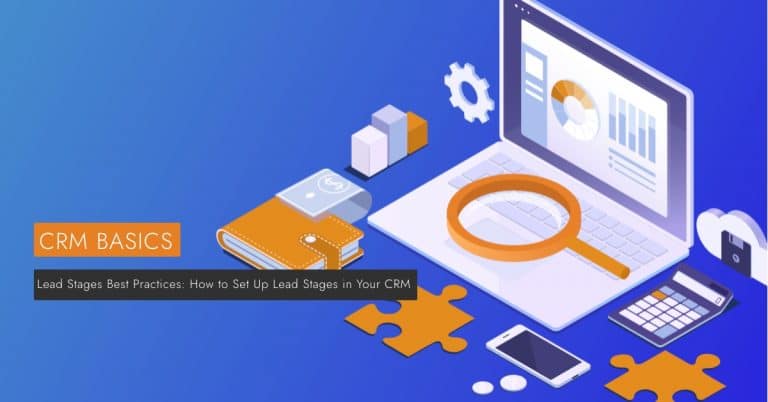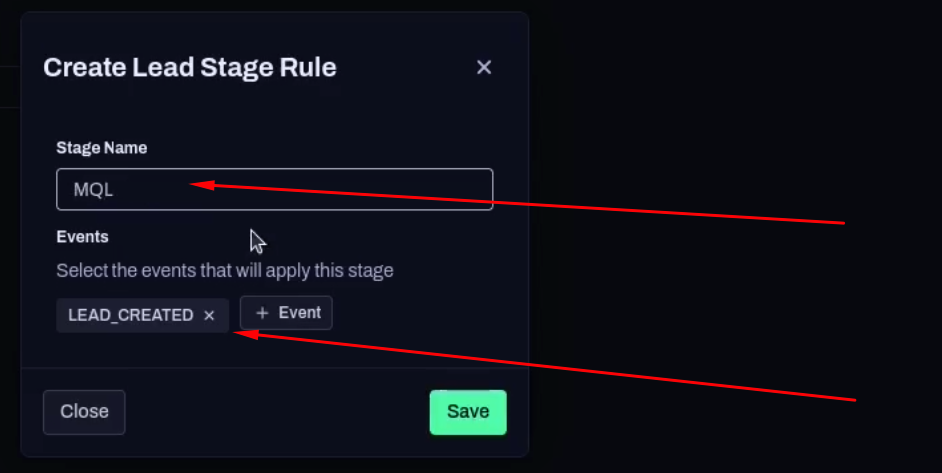
Unleash Growth: Mastering CRM with Custom Lead Stages for Unprecedented Sales Success
Introduction:
In today’s fiercely competitive business landscape, generic, one-size-fits-all approaches simply don’t cut it. To truly thrive, businesses need to tailor their strategies to the unique nuances of their customer base and sales processes. One of the most powerful ways to achieve this is by leveraging a Customer Relationship Management (CRM) system with custom lead stages.
While standard CRM systems offer predefined lead stages, customizing these stages to reflect your specific sales journey can unlock unprecedented sales success. This article delves into the world of CRM with custom lead stages, exploring their benefits, implementation strategies, and best practices to help you transform your sales process and drive remarkable growth.
What are Lead Stages in CRM?
Before diving into customization, it’s essential to understand the fundamental concept of lead stages. In a CRM, lead stages represent the different phases a potential customer goes through from initial contact to becoming a paying client. These stages provide a structured framework for managing leads, tracking their progress, and optimizing sales efforts.
Traditional lead stages might include:
- New Lead: Initial contact, information gathering
- Qualified Lead: Meets basic criteria, potential interest
- Opportunity: Sales conversation initiated, specific needs identified
- Proposal/Quote: Formal offer presented
- Negotiation: Terms and conditions discussed
- Closed Won: Deal finalized, customer acquired
- Closed Lost: Deal unsuccessful
The Limitations of Generic Lead Stages:
While these standard stages offer a basic structure, they often fall short of accurately reflecting the complexities of real-world sales processes. Every business is unique, with its own target audience, sales cycle, and specific requirements. Relying solely on generic lead stages can lead to:
- Inaccurate Lead Tracking: Missed opportunities, stalled deals
- Inefficient Sales Efforts: Wasted time, misdirected resources
- Poor Sales Forecasting: Unreliable predictions, misinformed decisions
- Lack of Visibility: Difficulty identifying bottlenecks, areas for improvement
The Power of Custom Lead Stages:
Customizing lead stages within your CRM empowers you to create a sales process that perfectly aligns with your business model. This tailored approach enables you to:
- Gain Deeper Insights: Understand exactly where leads are getting stuck
- Improve Lead Qualification: Focus on the most promising prospects
- Optimize Sales Activities: Deliver the right message at the right time
- Enhance Sales Forecasting: Make more accurate predictions
- Boost Sales Performance: Close more deals, faster
Benefits of Custom Lead Stages:
-
Improved Lead Qualification:
- Define specific criteria for each stage.
- Focus on leads with the highest potential.
- Reduce wasted time on unqualified prospects.
-
Enhanced Sales Productivity:
- Streamline the sales process.
- Automate tasks and workflows.
- Provide sales reps with clear direction.
-
Better Sales Forecasting:
- Track lead progression accurately.
- Identify trends and patterns.
- Make more reliable revenue predictions.
-
Increased Sales Revenue:
- Close more deals, faster.
- Improve customer satisfaction.
- Drive sustainable growth.
-
Greater Sales Team Alignment:
- Establish a shared understanding of the sales process.
- Improve communication and collaboration.
- Increase overall team performance.
How to Implement Custom Lead Stages:
-
Analyze Your Sales Process:
- Map out every step from initial contact to closing the deal.
- Identify key milestones and decision points.
- Involve sales reps in the process to gather their insights.
-
Define Custom Lead Stages:
- Create stages that accurately reflect your sales process.
- Use clear and concise language.
- Ensure each stage has a distinct purpose.
-
Integrate with Your CRM:
- Customize your CRM to include your new lead stages.
- Set up automation rules to move leads through the stages.
- Train your sales team on the new process.
Examples of Custom Lead Stages:
Here are some examples of custom lead stages for different industries:
- Software as a Service (SaaS):
- Free Trial Sign-Up
- Product Demo Scheduled
- Demo Completed
- Pricing Discussion
- Contract Sent
- Implementation
- Real Estate:
- Property Inquiry
- Property Showing Scheduled
- Showing Completed
- Offer Submitted
- Offer Accepted
- Closing
- Consulting:
- Initial Consultation
- Needs Assessment
- Proposal Presented
- Contract Negotiation
- Project Kick-Off
Tips for Success:
- Keep it Simple: Avoid creating too many stages.
- Be Specific: Clearly define the criteria for each stage.
- Automate: Use automation to move leads through the stages.
- Train Your Team: Ensure everyone understands the new process.
- Monitor and Adjust: Continuously evaluate and refine your lead stages.
Best Practices:
-
Regularly Review and Refine:
- Sales processes evolve over time.
- Periodically review your lead stages to ensure they remain relevant.
- Make adjustments as needed to optimize performance.
-
Align with Sales Goals:
- Ensure your custom lead stages support your overall sales objectives.
- Use them to track progress toward key performance indicators (KPIs).
-
Provide Ongoing Training:
- Train new sales reps on your custom lead stages.
- Provide ongoing training to keep your team up-to-date.
-
Gather Feedback:
- Solicit feedback from your sales team on the effectiveness of your lead stages.
- Use their insights to make improvements.
Conclusion:
CRM with custom lead stages is a game-changer for businesses looking to optimize their sales processes and drive revenue growth. By tailoring lead stages to their specific needs, businesses can gain deeper insights, improve lead qualification, enhance sales productivity, and boost overall sales performance. If you’re ready to take your sales efforts to the next level, it’s time to embrace the power of custom lead stages in your CRM.

